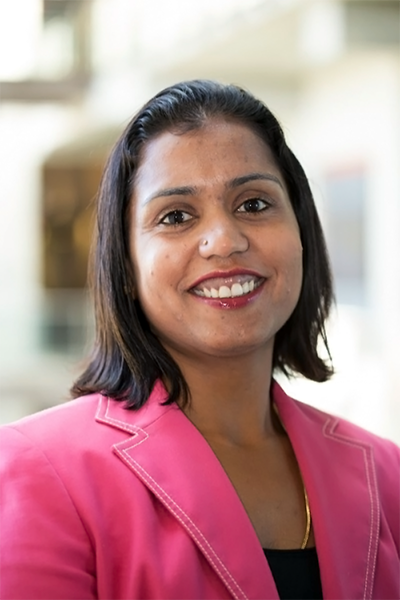 Multiscale Modeling of Membrane-Actin and Actin-Cross Linker Interactions
Multiscale Modeling of Membrane-Actin and Actin-Cross Linker Interactions
Speaker: Dr. Padmini Rangamani
Professor in Mechanical Engineering, University of California, San Diego
Location: CEME Building (6250 Applied Science Lane), room 1203
The Department of Mechanical Engineering’s Distinguished Colloquium series invites leading researchers to share their expertise on a variety of topics with our academic community.
Abstract:
The interactions between the plasma membrane and the actin cytoskeleton are fundamental to many cellular processes including membrane trafficking, cell shape regulation, and cell motility. These processes are inherently mechanochemical in that they harness complex molecular machineries to drive changes to the physical organization of the cell. As a result, they lend themselves to interrogation using both modeling and experimental approaches. In this talk, I will discuss two such efforts from my group — modeling endocytosis and the associated actin-membrane interactions and modeling actin assembly as a function of cross-linkers. In both these efforts, in addition to the quantitative models, I will also highlight the feedback between experiments conducted by our collaborators and the model predictions we generated, sharing both failures and successes along the way.
Biography:
Dr. Padmini Rangamani is a Professor in Mechanical Engineering at the University of California, San Diego. She joined the department in July 2014. Earlier, she was a UC Berkeley Chancellor’s Postdoctoral Fellow, where she worked on lipid bilayer mechanics. She obtained her Ph.D. in biological sciences from the Icahn School of Medicine at Mount Sinai. She received her B.S. and M.S. in Chemical Engineering from Osmania University (Hyderabad, India) and Georgia Institute of Technology respectively. She is the recipient of the PECASE, ARO, AFOSR, and ONR Young Investigator Awards, and a Sloan Research Fellowship for Computational and Molecular Evolutionary Biology. She is also the lead PI for a MURI award on Bioinspired low energy information processing from the AFOSR. She was recently elected as a fellow of the American Institute for Biological and Medical Engineers.